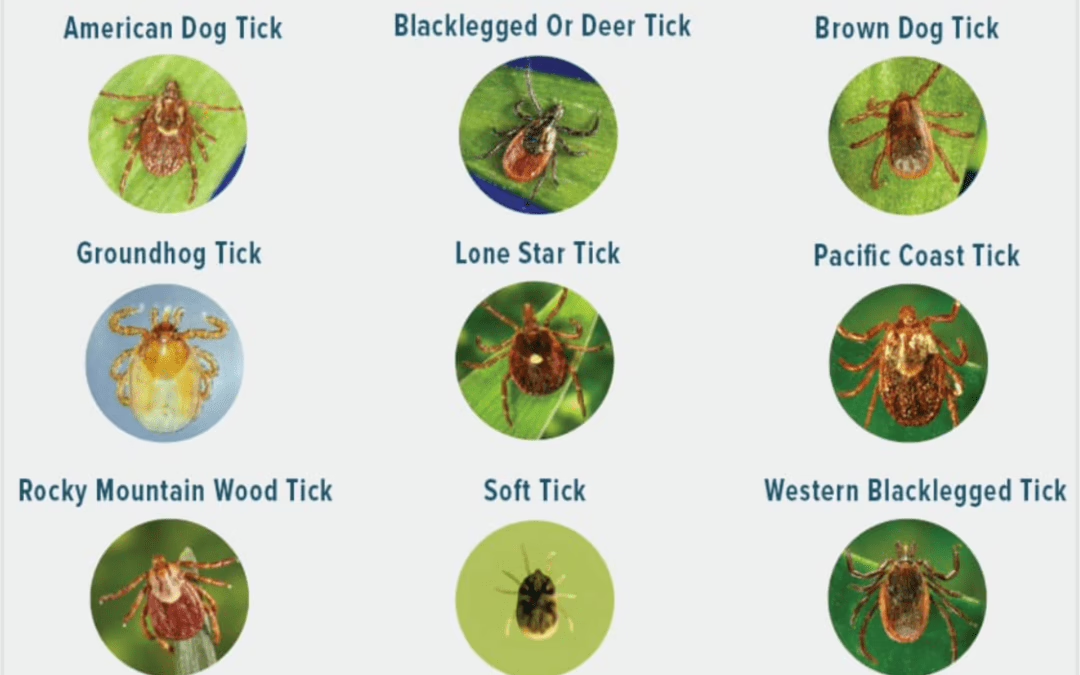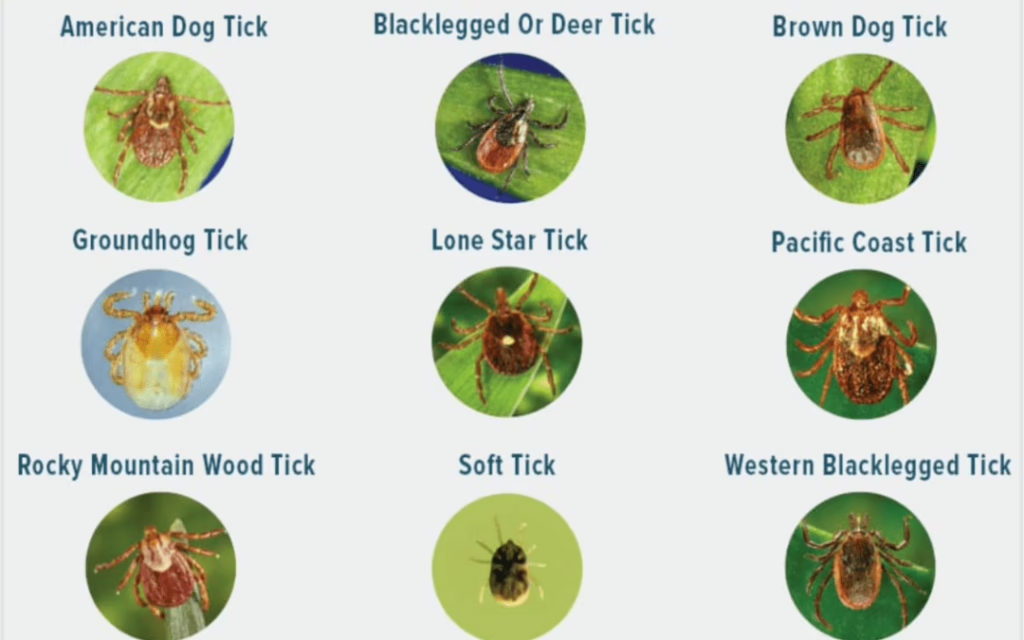
Identifying Types of Ticks
There’s quite a few varying species of ticks throughout Canada and the United States, all of which have varying geographic spreads, life cycles, and diseases. If you recently found a tick in your yard, use the chart below to help identify the type of tick.
Ticks pose a significant threat to both humans and pets, carrying diseases like Lyme disease. Understanding how to identify ticks and, more importantly, how to prevent ticks in your yard is crucial for maintaining a safe outdoor environment. This guide will help you understand where ticks hide and provide actionable steps to keep them out of your yard and home.
Identifying and Locating Ticks in Your Environment
Various species of ticks exist across Canada and the United States, each with distinct geographic distributions, life cycles, and associated diseases. If you’ve found a tick, resources are available to help you identify its type.
Where Ticks Live Outdoors
If you consistently find ticks on yourself or your pets after spending time in your yard, it’s a strong indicator of an outdoor tick problem. Ticks are not fans of direct sunlight or dry conditions. Instead, they prefer shaded and moist environments where they can wait for a host without dehydrating. Common hiding spots include under shrubs and leaves, wood piles, and along the edges of stone walls. They are most frequently found in the “transition zone” where a manicured lawn meets a wooded area, garden, or other overgrown vegetation. This is where they engage in “questing,” a behavior where they climb onto a blade of grass or a leaf and hold their front legs out, waiting to latch onto a passing person or animal. Understanding these high-risk areas is the first step to effective tick control.
Do Ticks Live in Short Grass?
This is a common question, and while the answer is technically yes, it’s far less likely. Ticks dislike short grass because it exposes them to direct sunlight and low humidity, conditions that they cannot survive in for long. By maintaining a short, well-manicured lawn, you make your yard a much less favorable environment for ticks compared to areas with taller, overgrown grass. Therefore, you are more likely to find ticks in taller grass and shaded, moist areas rather than in the middle of a mowed lawn. This is why proper lawn maintenance is one of the most effective preventative measures you can take.
Indoor Tick Infestations
Unfortunately, tick infestations can also occur indoors. This typically happens when a tick is carried inside by you or your pet and subsequently reproduces. Ticks are prolific breeders, capable of laying anywhere from 1,500 to 2,000 eggs at a time, often along baseboards. If you continue to find ticks inside your home, even without much outdoor exposure, it’s a clear sign of a significant indoor infestation that requires targeted treatment with insecticides in cracks, crevices, and pet living areas.
Ticks are more than just a nuisance; their bites can transmit serious diseases. Protecting your family and pets from ticks should be a top priority, especially during warmer months.
Keeping Ticks Out of Your Yard
Implementing preventative measures is key to how to prevent ticks in your yard. Here are some effective strategies:
- Keep Your Lawn Mowed: Ticks dislike short grass because it exposes them to direct sunlight. By maintaining a short lawn, you make your yard less attractive to ticks compared to areas with taller grass. This directly answers the question, do ticks live in mowed grass? While a few might, it’s a far less favorable environment for them.
- Secure Your Garbage from Rodents: Ticks aren’t attracted to garbage, but rodents are. Rodents can carry ticks into your yard, so ensuring your garbage bins are securely sealed can help prevent these tick-carrying hosts from entering your property.
- Remove Bird Feeders: Young ticks feed on birds. Once engorged, they will drop off the bird, potentially landing in your yard where they can then attach to you, your pets, or your children. Removing bird feeders can reduce the likelihood of ticks being brought into your yard by birds.
- Have Your Pets Treated For Ticks: Pets, particularly dogs, spend a lot of time in the backyard and are therefore prone to picking up ticks and bringing them into your home. Discuss tick treatment options with your veterinarian. This crucial step can significantly reduce the overall tick population in and around your home.
- Hire a Professional Pest Control Company: For comprehensive tick control, consider hiring a professional pest control company. Professional yard treatments can significantly reduce your exposure to ticks and the risk of tick-borne diseases like Lyme disease. Contact a local service to inquire about quotes and get started with a treatment plan for your yard.
By understanding where ticks reside and implementing these preventative measures, you can create a safer outdoor space for yourself and your loved ones, significantly reducing the risk associated with ticks in your yard.

